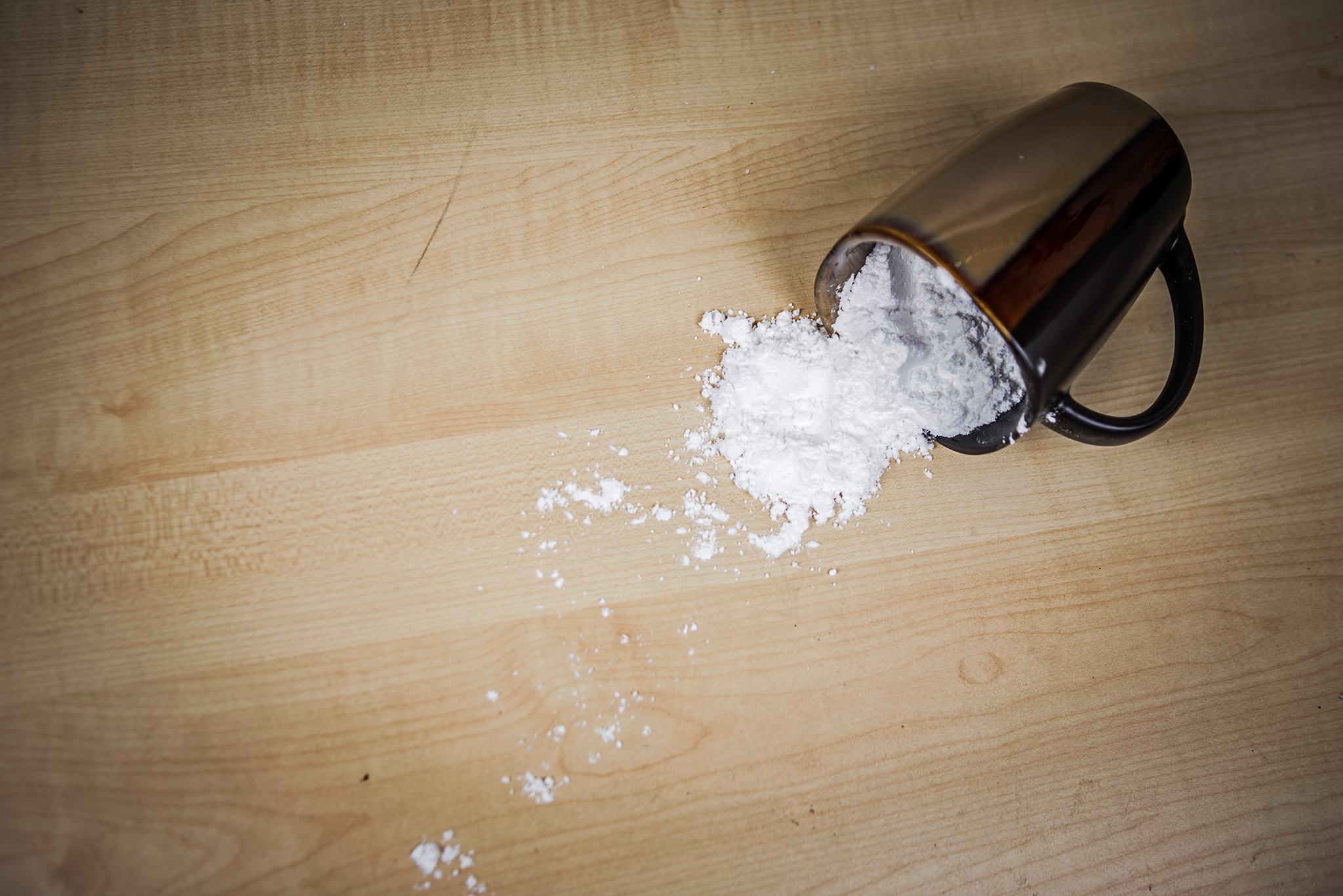Overload – The new threat to students
Mark Nycz, Harbinger
Friday, Nov. 13, 2015
As the days get shorter and the weather cools down, students are gearing up for finals and that means one thing: more caffeine. A substance that has become as much of a staple in college life, as pens and notebooks is now available in a highly potent powder form. What was once reserved for supplement pills and energy drinks, is commercially available in its raw powder form and has already claimed the lives of two people in the United States.
The biggest threat from this form of caffeine is the ability to easily overdose. Prior to this raw powder, one had to induce such large levels of caffeinated drinks they would be often get sick of the drink before coming close to over dosing. Now with the option to add caffeine straight to any drink, the risk of overdosing has significantly increased. Powder caffeine is so potent that only one teaspoon can be equal to 20 cups of coffee and a lethal dose is 10 grams, or an approximant tablespoon. Users are encouraged to use a micro scale for measuring precise amounts. It is recommended that one use only 1/32th and 1/16th of a teaspoon. With such careful measurements needed, the potential for overdose can be high. The signs of an overdose can differ from user to user but generally include; a jittery and shaky feeling, difficulty falling or staying asleep, faster or out of rhythm heartbeat, spike in blood pressure and dizziness.
Set for a pleasant life ahead with his newly wedded wife, James Wade explored the new form of caffeine in hopes of a healthier alterative to Diet Mountain Dew. Wade overdosed on the powder caffeine and put him in a coma that ultimately resulted in his death at the age of 24. He had purchased the drug online and was trying it for the first time. Not long before this sad incident did another unknowing person explore this new drug. Soon to be high school graduate, Logan Stiner, used the powder caffeine he acquired from a friend to help boost his studies. His body was found on the floor, unresponsive, by his bother. The official cause of death, according to the doctor, was “cardiac arrhythmia and seizures, due to acute caffeine toxicity due to excessive caffeine ingestion. “
These two unfortunate deaths have been a wakeup call to not only the nation but the Food and Drug Administration as well. According to the FDA, caffeine is labeled as both a drug and food additive. They advise that those with heart problems should avoid using it due to the fact that caffeine can cause several heart complications, including a faster heartbeat and an uneven heart rhythm. The FDA is currently trying to encourage business to reframe from selling the product, though it is still considered legal. Those who continue to sell the product may face legal actions.
Former ICC student and paramedic, Kayla Cook, has witnessed this first hand while working in the emergency room of the OSF hospital. “We had a 26 year old male who went SVT because he drank energy drinks all day then had a 5 hour energy drink” Cook said. “We started an IV, gave him fluids, and then we gave him a medicine called adenosine which stops the heart for a second and then restarts into to get it to slow down.” Cook spent 3 years working in the ER and can still vividly recalls those moments. “It’s not good for you. I’ve seen a lot of people have blood sugar issues and heart problems.”
The threat of caffeine is not new to the campus of ICC either. Student nurse, Deb Pence has encountered this drug before with students, often times in the form of energy drinks. She recalls when the drinks first hit the market and the flood of people who would come in fearing heart problems. When asked her opinion on this new form of caffeine she commented, “It should be regulated.” She is concerned over the fact that it is marketed as a dietary supplement rather than a stimulant and that it should come with an overdose warning. “It needs to be regulated like Sudafed” she said. “They should have to buy it from a pharmacist by showing their license and only getting a certain amount.”
In the event one were to overdose on powder caffeine, or any form of caffeine, they should call 911, according to nurse Pence “Anytime your heart is beating irregular or fast, and you can feel it, then you definitely get it checked out.” Says nurse Pence “Anybody with any heart defect, heart problem should not use this product.”
Like other forms of caffeine, such as coffee and energy drinks, this too can become addictive and be abused. For anyone who may be facing caffeine abuse problems or knows someone who is, ICC does have programs available to help. There are addiction recovery programs on campus as well as options for those with low incomes may dial 211 for options.
When asked her suggestion for a healthier alterative to this drug, Pence suggested eating healthy along with exercise but also recommended normal coffee or tea.

